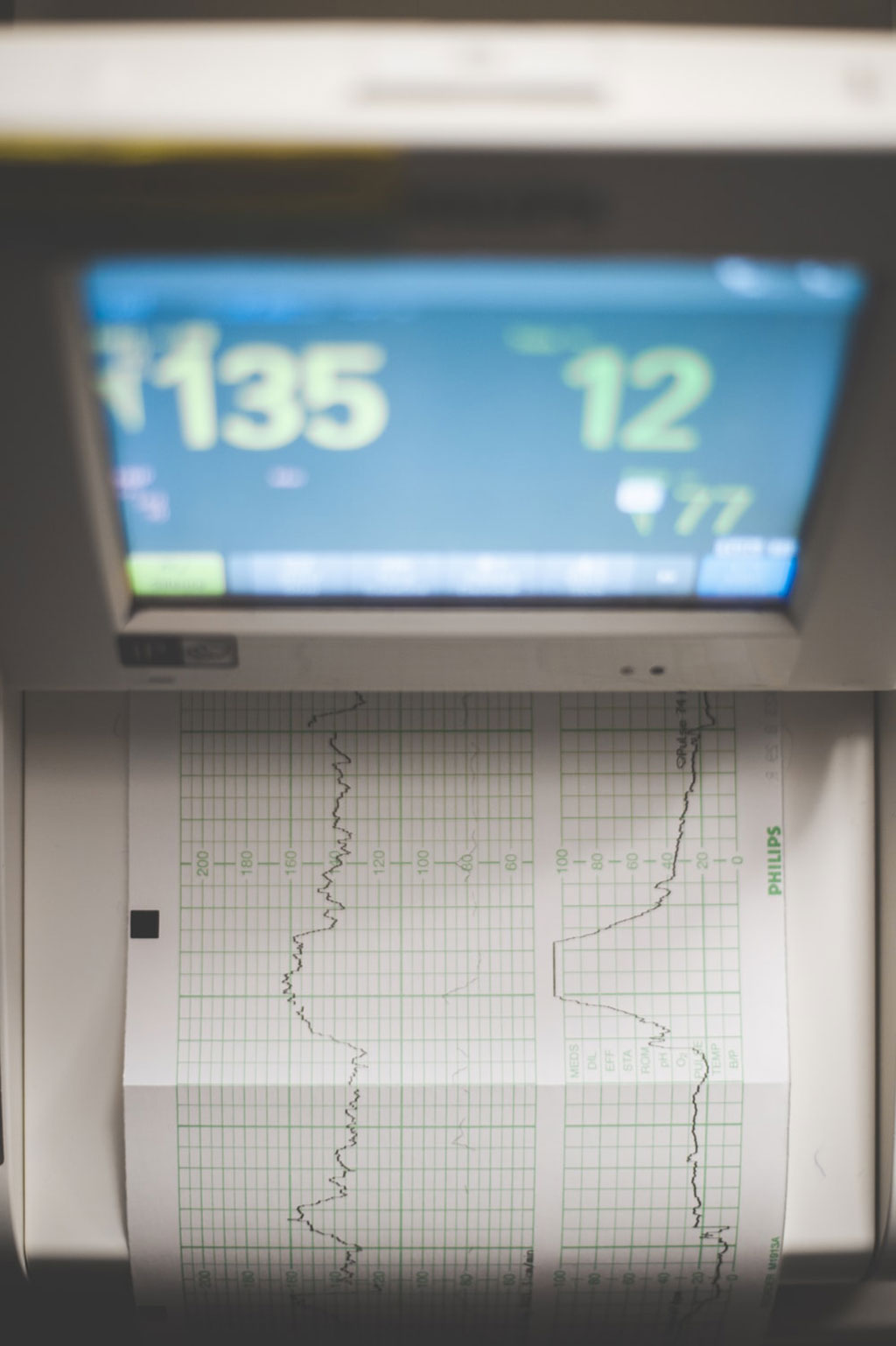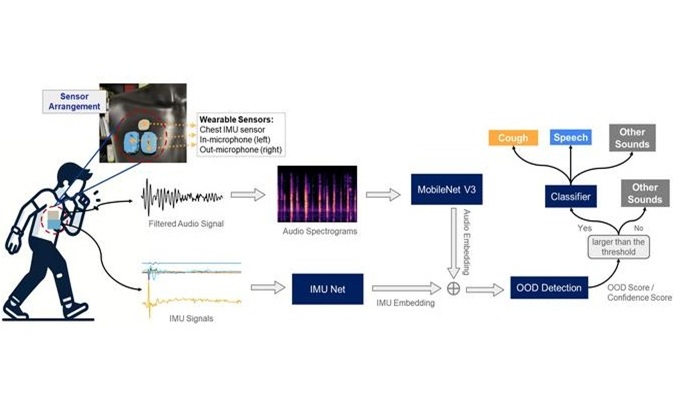AI Algorithm with Single-Lead EKG Predicts Long-Term Patient Survival After Cardiac Surgery
|
By HospiMedica International staff writers Posted on 10 Dec 2021 |

A novel artificial intelligence (AI) algorithm that identifies a cardiac dysfunction from a single-lead EKG also can predict long-term patient survival after cardiac surgery, according to new research.
The study by researchers at the Mayo Clinic (Rochester, MN, USA) found that an algorithm that previously has shown it can detect patients with reduced left ventricular ejection fraction also may predict long-term mortality after cardiac surgery, making it a potentially valuable tool for assessing risk as patients and their health care providers consider surgery.
The retrospective study involved reviews of 20,627 patients at Mayo Clinic from 1993 to 2019. The patients underwent coronary artery bypass grafting, valve surgery or both, and they had a left ventricular ejection fraction of more than 35%. Of these patients, 17,125 had a normal AI EKG screen and 3,502 had an abnormal screen. Patients with an abnormal screen tended to be older with more comorbidities.
The algorithm was applied to the most recent EKG the patients had within 30 days before surgery. Baseline characteristics, as well as in-hospital, 30-day and long-term mortality data, were extracted from the Mayo Clinic cardiac surgery database. Probability of survival at five years was 86.2% for patients with a normal screen versus 71.4% for those with an abnormal screen. The 10-year probability of survival was 68.2% and 45.1%, respectively, for the two groups.
The study is believed to be the first large-scale research to explore the usefulness of AI algorithms with a single EKG to better predict cardiac surgery outcomes. Because the algorithm uses a routine and relatively inexpensive test, it could be applied widely after validation. Additional studies are underway to determine whether the information provided by the algorithms can improve diagnosis, decision-making and clinical outcomes. The use of AI-based tests in cardiology is becoming more common in academic health care centers, and the results of this study may encourage more providers to consider their clinical significance.
"Our study finds there is a clear correlation between long-term mortality and a positive AI ECG screen for reduced ejection fraction among patients without apparent severe cardiomyopathy," says Mohamad Alkhouli, M.D., a Mayo Clinic cardiologist and the study's senior author. "This correlation was consistent among patients undergoing valve, coronary bypass, or valve and coronary bypass surgery."
"Our study documented the algorithm's prognostic value in predicting long-term, all-cause mortality after cardiac surgery," added Dr. Alkhouli. "The analysis showed that an abnormal AI screen was associated with a 30% increase in long-term mortality after valve or coronary bypass surgery. For clinicians, this may aid in risk stratification of patients referred for surgery and facilitate shared decision-making."
Related Links:
Mayo Clinic
Latest Surgical Techniques News
- Novel Glue Prevents Complications After Breast Cancer Surgery
- Breakthrough Brain Implant Enables Safer and More Precise Drug Delivery
- Bioadhesive Sponge Stops Uncontrolled Internal Bleeding During Surgery
- Revolutionary Nano Bone Material to Accelerate Surgery and Healing
- Superior Orthopedic Implants Combat Infections and Quicken Healing After Surgery
- Laser-Based Technique Eliminates Pancreatic Tumors While Protecting Healthy Tissue
- Surgical Treatment of Severe Carotid Artery Stenosis Benefits Blood-Brain Barrier
- Revolutionary Reusable Duodenoscope Introduces 68-Minute Sterilization
- World's First Transcatheter Smart Implant Monitors and Treats Congestion in Heart Failure
- Hybrid Endoscope Marks Breakthrough in Surgical Visualization
- Robot-Assisted Bronchoscope Diagnoses Tiniest and Hardest to Reach Lung Tumors
- Diamond-Titanium Device Paves Way for Smart Implants that Warn of Disease Progression
- 3D Printable Bio-Active Glass Could Serve as Bone Replacement Material
- Spider-Inspired Magnetic Soft Robots to Perform Minimally Invasive GI Tract Procedures
- Micro Imaging Device Paired with Endoscope Spots Cancers at Earlier Stage
- AI Spine Model Could Reduce Surgical Risks
Channels
Critical Care
view channel
Origami Robots to Deliver Medicine Less Invasively and More Effectively
Delivering medicine to ulcers or other internal sites often requires invasive procedures that can disrupt surrounding tissues and lengthen recovery times. Traditional magnetic actuators used in soft robotics... Read more
Improved Cough-Detection Technology Aids Health Monitoring
Coughing serves as an important biomarker for tracking a variety of conditions and can help monitor the progress of respiratory diseases or predict when someone’s asthma is being exacerbated.... Read morePatient Care
view channel
Revolutionary Automatic IV-Line Flushing Device to Enhance Infusion Care
More than 80% of in-hospital patients receive intravenous (IV) therapy. Every dose of IV medicine delivered in a small volume (<250 mL) infusion bag should be followed by subsequent flushing to ensure... Read more
VR Training Tool Combats Contamination of Portable Medical Equipment
Healthcare-associated infections (HAIs) impact one in every 31 patients, cause nearly 100,000 deaths each year, and cost USD 28.4 billion in direct medical expenses. Notably, up to 75% of these infections... Read more
Portable Biosensor Platform to Reduce Hospital-Acquired Infections
Approximately 4 million patients in the European Union acquire healthcare-associated infections (HAIs) or nosocomial infections each year, with around 37,000 deaths directly resulting from these infections,... Read moreFirst-Of-Its-Kind Portable Germicidal Light Technology Disinfects High-Touch Clinical Surfaces in Seconds
Reducing healthcare-acquired infections (HAIs) remains a pressing issue within global healthcare systems. In the United States alone, 1.7 million patients contract HAIs annually, leading to approximately... Read moreHealth IT
view channel
Printable Molecule-Selective Nanoparticles Enable Mass Production of Wearable Biosensors
The future of medicine is likely to focus on the personalization of healthcare—understanding exactly what an individual requires and delivering the appropriate combination of nutrients, metabolites, and... Read moreBusiness
view channel
Philips and Masimo Partner to Advance Patient Monitoring Measurement Technologies
Royal Philips (Amsterdam, Netherlands) and Masimo (Irvine, California, USA) have renewed their multi-year strategic collaboration, combining Philips’ expertise in patient monitoring with Masimo’s noninvasive... Read more
B. Braun Acquires Digital Microsurgery Company True Digital Surgery
The high-end microsurgery market in neurosurgery, spine, and ENT is undergoing a significant transformation. Traditional analog microscopes are giving way to digital exoscopes, which provide improved visualization,... Read more
CMEF 2025 to Promote Holistic and High-Quality Development of Medical and Health Industry
The 92nd China International Medical Equipment Fair (CMEF 2025) Autumn Exhibition is scheduled to be held from September 26 to 29 at the China Import and Export Fair Complex (Canton Fair Complex) in Guangzhou.... Read more














